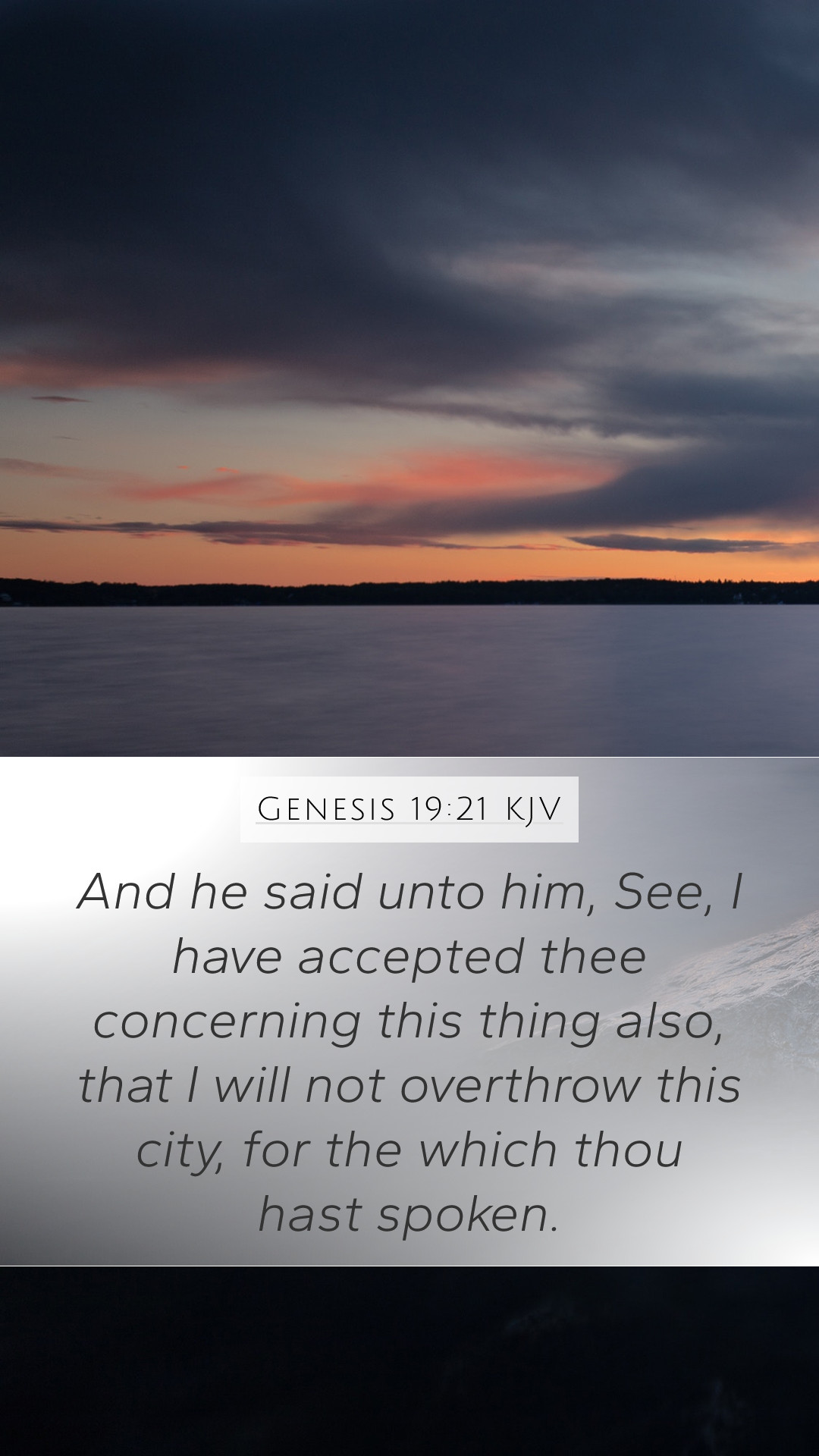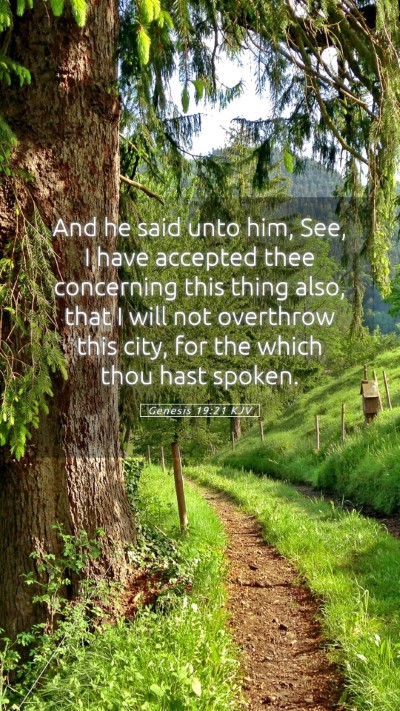Understanding Genesis 19:21
Genesis 19:21 states, "He said to him, 'Behold, I grant you this favor also, that I will not overthrow the city of which you have spoken.' This verse encapsulates God's mercy amidst judgment, reflecting His compassionate nature even in dire circumstances. Below is a detailed exploration of the verse's meaning derived from various public domain commentaries.
Bible Verse Meanings
Understanding Genesis 19:21 involves an exploration of God's promise to Lot and the significant implications it holds for believers today. The verse illustrates:
- Divine Mercy: God's willingness to spare the city demonstrates His mercy. Matthew Henry emphasizes the importance of understanding God's character as forgiving and merciful, particularly when individuals earnestly seek His help.
- The Value of Intercession: Lot's plea to God reveals the power of interceding for others. Albert Barnes notes that Lot acted as an intercessor for the city, which prompts believers to consider their role in prayer for others.
- Judgment and Salvation: The context indicates impending judgment on Sodom and Gomorrah, yet God's recognition of Lot signifies salvation for the faithful. Adam Clarke highlights that even in judgment, there remains an opportunity for grace.
Bible Verse Interpretations
Various interpretations arise from this verse. Scholars have approached it from different angles, shedding light on its rich meanings:
- Historical Context: Understanding the cultural and historical backdrop of Sodom's destruction is crucial. The sinful practices in Sodom warranted judgment, but God's nature as a just judge is balanced with His grace.
- Character of God: This verse provides insight into God's responsiveness to human plea. Commentators like Matthew Henry suggest that God is not dictatorial; rather, He is relational, engaging with His creation.
Bible Verse Commentary
In the comprehensive commentary of Genesis 19:21, we find multiple layers of understanding:
- God's Promise: The specific promise not to overthrow the city reflects God's fairness; Lot's presence caused a delay in deserved judgment.
- Gracious Accommodation: God’s allowance shows His desire to accommodate Lot’s fears, highlighting divine empathy.
Scripture Analysis and Biblical Exegesis
Through careful scripture analysis, we can synthesize the core themes presented in Genesis 19:21:
- Grace in Judgement: This verse synthesizes the dual aspects of God's character—His justice and mercy, making it central in the study of divine grace.
- In-depth Comparison: Cross-referencing with 2 Peter 2:6-8 further elaborates on the fate of the ungodly, contrasting it against Lot's deliverance.
Bible Study Insights
As we delve deeper into understanding Genesis 19:21, it ties back to numerous Bible study insights:
- The Nature of Intercession: How Lot's appeal provides a profound example for Christians today in praying for those around them.
- Judgment with Hope: Even in a narrative of destruction, there is a focus on salvation through responsiveness to God’s directives.
Cross References
This verse connects to several significant scripture passages:
- Genesis 18:23-33: Abraham's intercession for Sodom.
- 2 Peter 2:6-8: Reflection on divine judgment and Lot's righteousness.
- Luke 17:29-30: Jesus' teachings on the fate of Sodom.
Conclusion
Genesis 19:21 serves as a profound reminder of God's mercy interwoven with justice. With a comprehensive interpretation derived from significant biblical commentaries, we see the character of God unfold as both compassionate and just. Thus, understanding this verse through various analytical lenses provides clarity and a deeper appreciation for the text.


